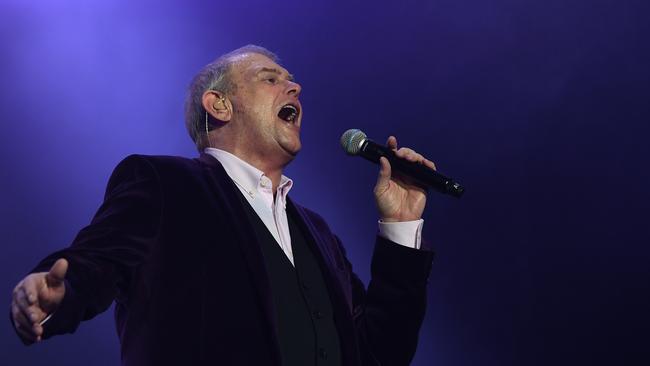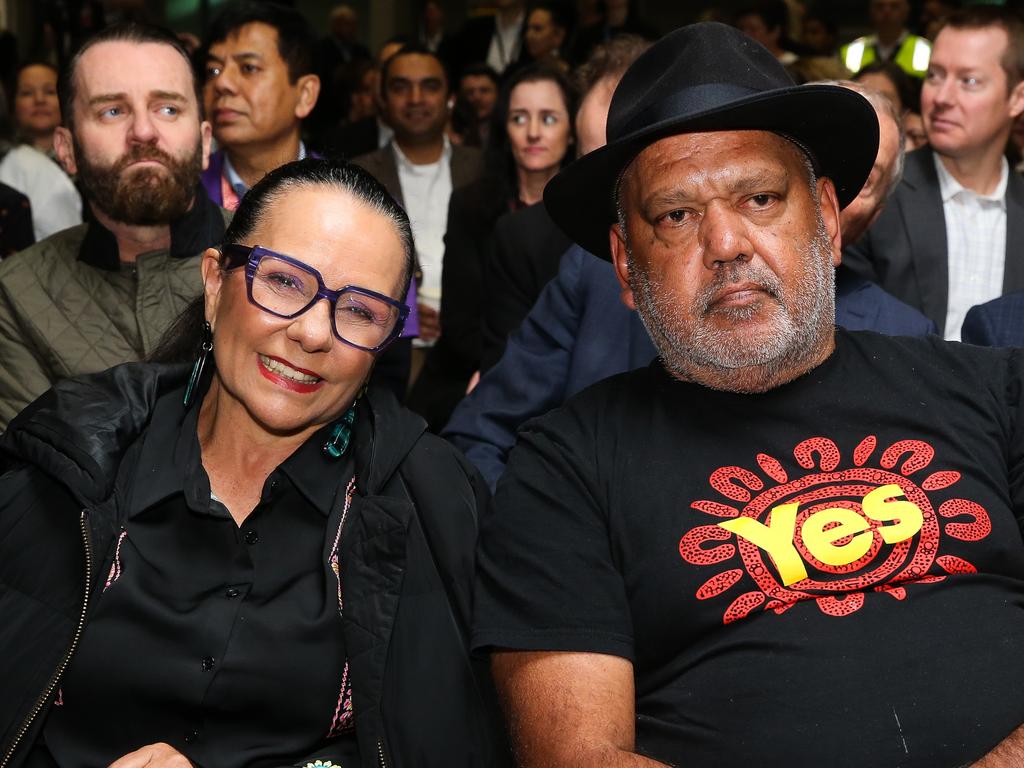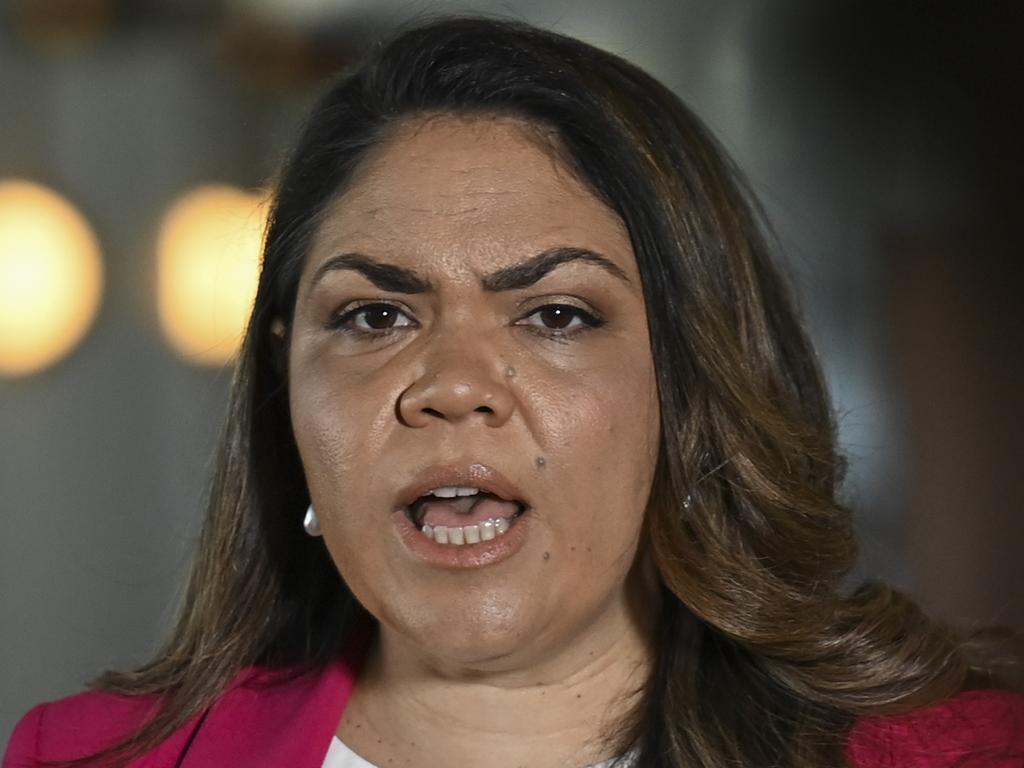On the voice referendum, the Constitution is no place for a lobby group
An Indigenous voice to parliament would be more like the Pharmacy Guild on political steroids if it is entrenched.

It’s a game changer, the former chief prosecutor of politics at the ABC, Barrie Cassidy, says of the ad. We will see about that claim.
This, however, is beyond question: five weeks out from the vote, the Yes campaign still has far more in common with a slick modern election campaign than a serious nationwide conversation to change our founding document.
Indeed, everything that we would normally agree on as comprising the worst of modern political campaigns has become central to the Yes campaign: movable claims (the voice is not justiciable, they said, until they said it must be justiciable); ditching principles (Malcolm Turnbull was against the voice when he believed “our democracy is built on the foundation of all Australian citizens having equal civic rights”); telling a few fibs here and there (the fibbers are too many to name); politicians not across the detail of their own policy (that is the kindest thing we can say about Anthony Albanese and Linda Burney); and regular abuse dished out to people who disagree (Bret Walker swung the big verbal bat, claiming some entirely respectable arguments were racist, while Phillip Adams this week assured us “every RWNJ is voting No”. RWNJ is Adams-speak for right-wing nut job).
The icing on this disrespectful campaign cake is John Farnham giving his song You’re the Voice to the Yes side.
Many Yes activists are telling us that playing a song from 1986 will win over some boomers. After all, other political campaigns settled on a theme song, from Bill Clinton rallies rocking to Fleetwood Mac’s Don’t Stop in 1992 to John F. Kennedy in 1960 campaigning to the Frank Sinatra song High Hopes.
It’s enough to lead your average voter to think there is a federal election on October 14, rather than a referendum about changing our Constitution. But if one strips away the music, T-shirts and abuse, it could be a campaign for a new hair shampoo.
There is still plenty of time for Yes activists to show respect for voters by providing accurate information, rather than all this vibey nonsense.
Before we turn to that, a quick digression for Peter Dutton. Another referendum if this one fails? Shoot me now. That’s as enticing as Cyndi Lauper promising to release a shorter version of True Colors. It’s still too soon for that.
The Opposition Leader had a better idea when he quoted a line from Farnsy’s famous song: “You’re the voice, try to understand it.”
Farnham’s line is as honest an instruction as you will get from any Yes activist. Most would prefer that we didn’t understand it.
With weeks to go, there is a heightened nonsense being peddled to get people to support this constitutional change. It is the height of disrespect – again, I am settling on a kind word – for the Yes side to engage in woefully shallow attempts to impart details about an entirely new chapter being proposed for our Constitution. Many have overlooked that respect begets respect.
I am sure Peter Hartcher over at The Sydney Morning Herald is a very smart chap. His voice certainly gives him a ring of intelligence. I’ve heard him say very insightful things from time to time.
But last week he was either being daft or pulling his readers’ legs when he claimed the proposal to insert a race-based body into the Constitution is no different to any number of well-known and more obscure advisory bodies. Think of the Pharmaceutical Benefits Advisory Committee, the Women’s Economic Equality Taskforce, the Productivity Commission or the Hip and Knee Expert Clinical Advisory Group, Hartcher said. Nothing to see here, he assured us.
Arguments in favour of the voice ought to be able to sustain even a small dose of intellectual rigour. Allow me to dispense that dose here. None of these advisory bodies is entrenched in, or even mentioned in, the Constitution. Each of them can be restructured, reshaped or even abolished by parliament in its infinite discretion. None of them creates a special class of civic rights for a certain group of people based on their race.
Hartcher’s comparison is lightweight because every one of the advisory bodies he mentions is meant, at least in theory, to devise policy and make recommendations in the best interests of the nation, not for the benefit of any sectional interest.
Moreover, those who sit on these specialist advisory bodies are chosen for their expertise – not because they have rallied votes at an election for a certain class of Australians.
The Pharmaceutical Benefits Advisory Committee is a very good example of why Hartcher is wrong. When the specialist board gives advice about what new medicines should be listed on the Pharmaceutical Benefits Scheme, it does so in the national interest.
A better comparison for the voice would be a lobby group such as the Pharmacy Guild or any other lobby group that is unapologetically charged with pursuing sectional interests.
There is nothing wrong with that narrower remit. A democracy should be a noisy place with lots of voices vying for attention. Some do it better than others.
The Pharmacy Guild, for example, knows how to scare the bejesus out of politicians, usually by threatening some form of political blackmail in the lead-up to an election. It works because the Pharmacy Guild has concocted a mystique that it is all about “community” when in fact it is all about filling the hip pocket of a small cohort of business owners.
When demanding something or other – meaning fleecing the taxpayer or the consumer or, even better, both constituencies – it drones on about protecting this transcendent thing called “community pharmacy”. It’s vibey nonsense. The only community it is protecting is itself. It is a lobby group, no different to a trade union.
But politicians of an intellectually shallow stripe – which is most of them given the Pharmacy Guild’s success rate – fall for their demands.
The point is that the voice would be a political body entrenched in the Constitution that has nothing in common with a statutory expert advisory body such as the Pharmaceutical Benefits Advisory Committee (or any of the other advisory bodies Hartcher mentions)
The voice would be more like the Pharmacy Guild on political steroids if it is entrenched in the Constitution. Who thinks it would be a good idea to put the Pharmacy Guild, or the ACTU, or the Business Council of Australia, or any other similar political lobby group, in the Constitution?
It’s utter nonsense. Recognition is one thing. So is listening to a lobby group. But giving them constitutional rights is absurd.
What has been missing from this debate is not just a serious conversation – and public debates – about the constitutional consequences of altering the Constitution but also a very serious debate about the change of direction needed to secure Indigenous advancement.
Australian governments, and their various departments, are advised by many Indigenous advisory bodies, many very well-funded ones. The answer for Indigenous advancement is not a new constitutional location for a lobby group – it is confronting what has gone wrong in the past. That means rigorously measuring successes and failures, demanding that every action is measured against real metrics, rather than the continual flow of feel-good money with no testing of outcomes.
This truly arduous work could have begun decades ago.
Noel Pearson said this week, that policy must return to a dual focus on rights and responsibilities. He observed correctly that many on the left bristle at any mention of responsibility.
What he failed to explain is how yet another bureaucracy – one entrenched in the Constitution and whose existence will be quarantined from parliamentary oversight – will confront this challenge.
How will the voice challenge, let alone discard, the failed shibboleths of those Indigenous activists who are opposed to focusing on the responsibilities each of us – regardless of race – has towards our children, our family, our friends and our society, responsibilities that secure the best educational, health, social and financial outcomes?
Well-meaning leaders at the forefront of Indigenous affairs for the past 40 years haven’t managed to move the dial enough to significantly improve the lives of the most vulnerable Indigenous people. A very large industry has a track record of very poor outcomes.
Cementing a lobby group into the Constitution won’t alter that direction. It risks entrenching the same “rights” agenda. We know that from the Uluru Statement from the Heart, from the demands of voice activists such as Thomas Mayo and others, further undermining the need for a transformative cultural change towards responsibility.
These difficult issues are being drowned out by a deliberately emotional and disingenuous campaign, and by Farnsy’s 1986 song.








Millions of dollars are pouring in from corporate donors, there are campaign buttons galore with people in Yes23 T-shirts plastered all over social media, along with a new emotional advert out this week that, according to Yes activists, is making people cry.